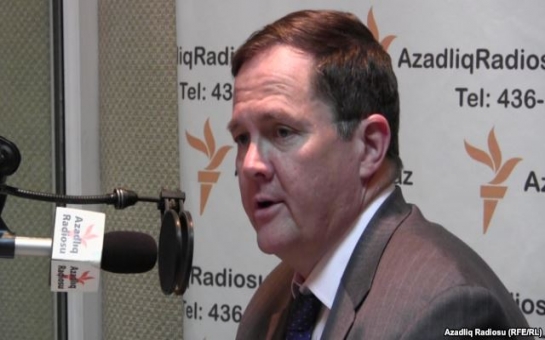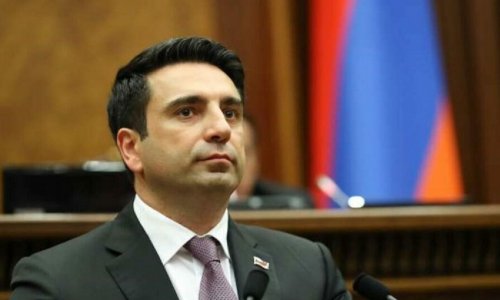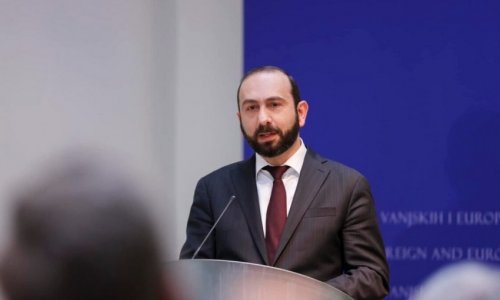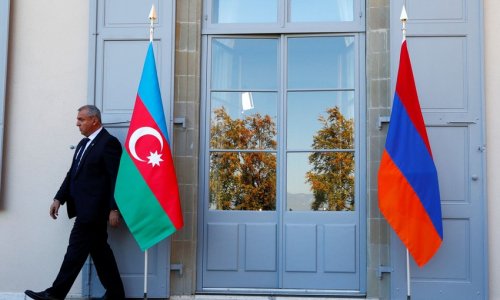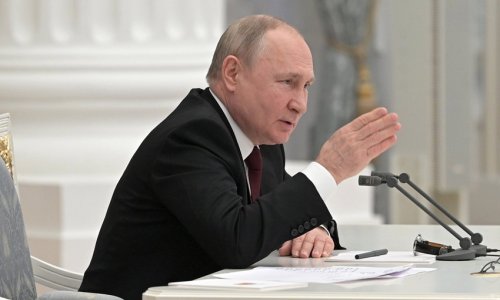A senior U.S. official says civil liberties in Azerbaijan have steadily worsened over the past five years and continue to deteriorate, RFE/RL reported.
In 2009, advocates of democratic reforms – in particular opposition political parties – already faced difficulties participating in Azerbaijan’s political life, U.S. Deputy Assistant Secretary of State Thomas Melia said in June 11 testimony before the U.S. Helsinki Commission.
“But it was still possible for NGOs and independent activists to operate. Sadly, the environment has worsened significantly since then,” said Melia, who is responsible for Europe – including Russia – in the State Department’s Bureau of Democracy, Human Rights, and Labor.
Melia cited politically tinged prosecutions of peaceful political activists and the introduction of onerous laws targeting NGOs as examples of a broad crackdown on civil society under Azerbaijani President Ilham Aliyev.
U.S. Senator Benjamin Cardin, a Maryland Democrat and chairman of the Helsinki Commission, presided over the hearing, which convened to discuss U.S.-Azerbaijani relations in the areas of security, economics, and human rights.
Cardin, who is set to travel to Azerbaijan in late June with a group of fellow U.S. lawmakers, recently called on the U.S. administration to engage Baku “forcefully” on the issue of human rights, even as it pursues bilateral cooperation on energy and other issues.
Azerbaijan’s well-oiled lobby in Washington has been actively promoting the energy-rich country as a potential key player in weaning Europe off of Russian gas supplies following the Kremlin’s annexation of Ukraine’s Crimea territory in March.
In testimony at the June 11 Helsinki Commission hearing, Eric Rubin, U.S. deputy assistant secretary of state in the Bureau of European and Eurasian Affairs, noted Azerbaijan’s positive security and energy cooperation with the United States.
He added, however, that the United States' “strongest relationships” across the globe are with “democracies that respect the full range of human rights of their citizens.”
“We have concerns about the environment for democratic development and the protection of human rights in Azerbaijan, which have been deteriorating,” Rubin said.
Melia cited in his testimony several cases that Western rights watchdogs call politically motivated prosecutions, including that of opposition politician Ilgar Mammadov and independent election observer Anar Mammadli, both of whom are currently incarcerated.
Other actions by the Azerbaijani government – including the suppression of “peaceful pro-democracy rallies” in 2011 and the enactment of legislation last year restricting the financing and activities of NGOs – have exacerbated the situation, Melia said.
“Since early 2013, the space for peaceful dissent has narrowed more dramatically, and the exercise of fundamental freedoms has become still more tenuous,” he told the hearing.
Azerbaijani officials have dismissed the U.S. State Department’s criticism of the countries human rights record as biased and inaccurate.
In January, Aliyev denied that there are any political prisoners in Azerbaijan.
Bakudaily.az

